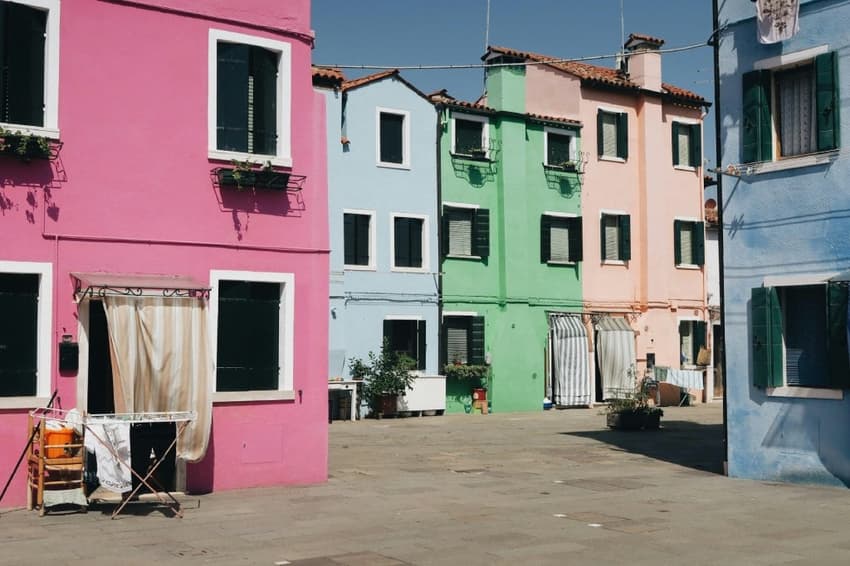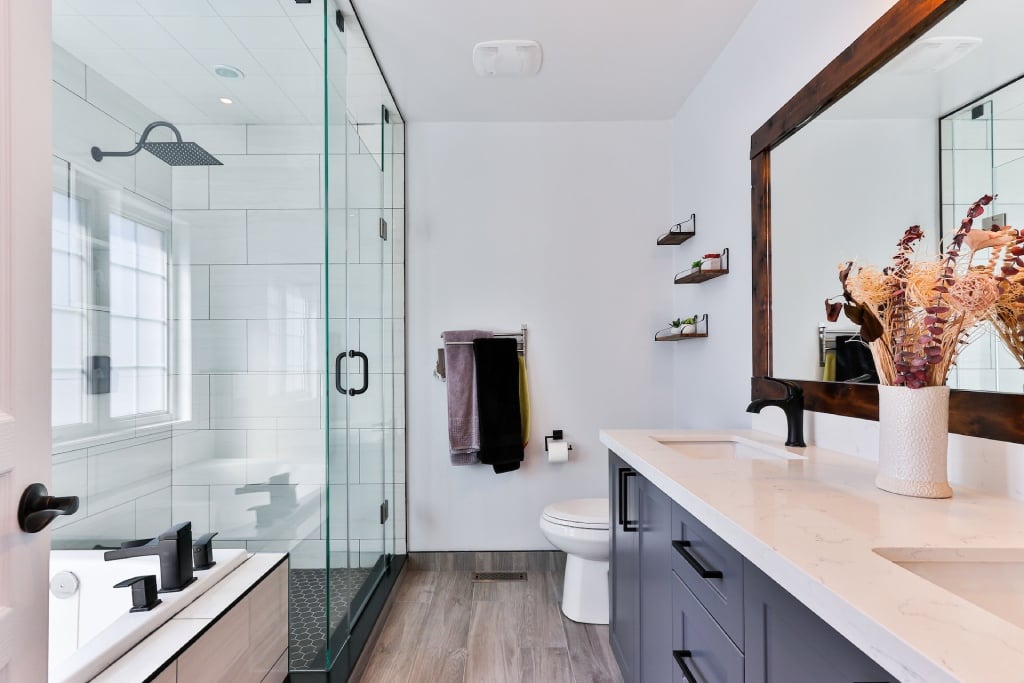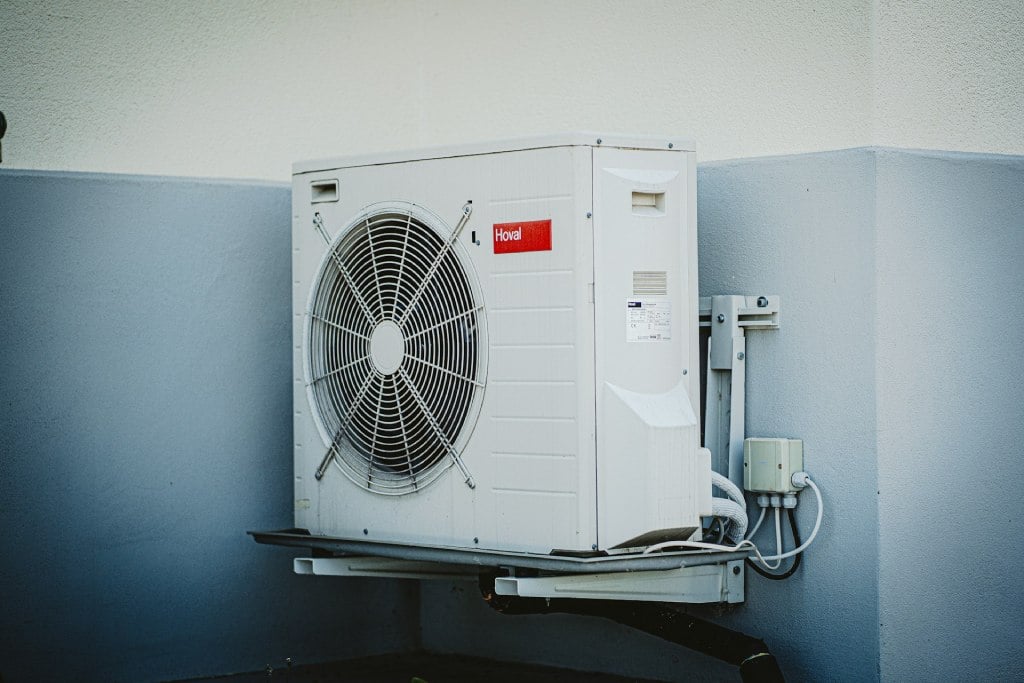Six surprising Italian building laws that you might not know about

Italy has a fair share of rules when it comes to building or renovating property – but there are some that you may well find hard to believe.
Owning a home in Italy is the dream of a lifetime for many.
But whether you’ve already bought a casa in the country and are now in the process of renovating it, or just have your eyes set on a picturesque farmhouse in the Tuscan hills, you may already have some level of familiarity with the intricate bureaucracy that goes along with purchasing and revamping property in Italy.
That includes complying with a fairly long series of building regulations, some of which can often be hard to believe, even for locals.
Mandatory bidets
Most Italians can't begin to imagine a bathroom without a bidet – a low, oval basin which is generally used to wash one’s nether regions (or feet). But that’s not the only reason why the item is a ubiquitous feature in Italian homes.
Bidets are a legal building requirement in Italy as a Ministerial Decree issued in 1975 states that in each house “at least one bathroom must have the following fixtures: a toilet, a bidet, a bathtub or shower, and a sink”.
READ ALSO: Are bidets legally required in Italian homes?
Italian law also says that there should be a minimum distance between the bidet and other bathroom fixtures (for instance, the bidet should be at least 20 centimetres away from both the toilet and the bathtub or shower).

Bathrooms in most countries in the world don’t feature a bidet, but things are quite different in Italy. Photo by Sidekik Media via Unsplash
As outlandish as it may sound, the above requirement is necessary to the issuance of the Certificato di Agibilità, which attests that a building abides by the relevant health and safety regulations and is therefore safe to be occupied.
Bathroom wall tiling requirements
While we’re on the subject of bathrooms, each Italian municipality (or comune) has its own set of building regulations (or regolamento edilizio, RE), which, among other things, establishes the minimum height of bathroom wall tiling in private homes.
For instance, in Milan and Naples wall tiles must have a minimum height of 1.80 metres.
It’s also worth noting that some comuni may not give precise height indications and take the bottom or top of a bathroom’s window as the minimum permissible height.
AC rules
Some parts of the country experience bouts of extreme heat over the summer, and an air-conditioning system is generally the most effective way to keep your Italian house cool over the hot months. But if you’re the owner of a flat, installing an AC system may be a bit of a headache.

Installing an AC system in Italy is generally far easier for owners of single-family houses than it is for flat owners. Photo by Carlos Lindner on Unsplash
Specific building regulations may prevent owners from having external AC engines on the building’s facade or demand that AC engines are of the same colour as the building.
READ ALSO: What are the rules for installing air conditioning in your Italian home?
Flat owners should also be mindful of article 907 of Italy’s Civil Code, which specifies that any type of external construction, including AC engines, should be at least three metres away from the windows or terrace of the floor directly above them to avoid obstructing the view.
Minimum size for windows
Like in other countries, national building regulations establish minimum height and surface requirements for all rooms in private homes.
For instance, a bedroom for one person must have a surface area of at least 9 square metres in, whereas bedrooms for two people must be at least 14 square metres in size.
But there are size requirements for windows too. In fact, the surface area of a room’s window opening must be at least one eighth of the room’s surface area (e.g., 1.25 square metres for a 10-square-metre room).
Are in-sink garbage disposal units legal?
If you’ve spent any meaningful amount of time in Italy, you may have noticed that in-sink garbage disposal units are nearly non-existent in the country and food scraps are generally kept in a small organic waste container that’s emptied out once or twice a week.
Disposal units (or tritarifiuti in Italian) are technically legal in the country, but, under Italian law, their installation is only possible after "verification of the existence of a depuration system” in the sewer network on the part of its operator and following a notification of successful installation to the water network operator.
READ ALSO: Sheds and sewage: How neighbour disputes complicate life in Italy
Most Italians prefer to regularly take out their food scraps to their local garbage collection area to the hassle of that procedure.
Keeping plants on the balcony
Though this is not strictly related to building regulations, it’s still worth a mention for owners with a green thumb.
Some buildings can occasionally prevent flat owners from keeping plants in common areas (like a hallway, or a stairwell landing) to avoid any obstruction to the passage of other residents.
Having plants on a private balcony is generally permitted. However, owners should be cautious when watering them.
Water dripping from your balcony to the balcony of the flat (or flats) right below on a regular basis may amount to the offence of Reato di getto di cose pericolose (literally, ‘throwing of dangerous things’).
This comes with a fine of up to 206 euros, and in the most serious cases, a jail term of up to a month.
This list is non-exhaustive. If you know of any other surprising building laws in Italy, let us know in the comments below.
Comments
See Also
Owning a home in Italy is the dream of a lifetime for many.
But whether you’ve already bought a casa in the country and are now in the process of renovating it, or just have your eyes set on a picturesque farmhouse in the Tuscan hills, you may already have some level of familiarity with the intricate bureaucracy that goes along with purchasing and revamping property in Italy.
That includes complying with a fairly long series of building regulations, some of which can often be hard to believe, even for locals.
Mandatory bidets
Most Italians can't begin to imagine a bathroom without a bidet – a low, oval basin which is generally used to wash one’s nether regions (or feet). But that’s not the only reason why the item is a ubiquitous feature in Italian homes.
Bidets are a legal building requirement in Italy as a Ministerial Decree issued in 1975 states that in each house “at least one bathroom must have the following fixtures: a toilet, a bidet, a bathtub or shower, and a sink”.
READ ALSO: Are bidets legally required in Italian homes?
Italian law also says that there should be a minimum distance between the bidet and other bathroom fixtures (for instance, the bidet should be at least 20 centimetres away from both the toilet and the bathtub or shower).

As outlandish as it may sound, the above requirement is necessary to the issuance of the Certificato di Agibilità, which attests that a building abides by the relevant health and safety regulations and is therefore safe to be occupied.
Bathroom wall tiling requirements
While we’re on the subject of bathrooms, each Italian municipality (or comune) has its own set of building regulations (or regolamento edilizio, RE), which, among other things, establishes the minimum height of bathroom wall tiling in private homes.
For instance, in Milan and Naples wall tiles must have a minimum height of 1.80 metres.
It’s also worth noting that some comuni may not give precise height indications and take the bottom or top of a bathroom’s window as the minimum permissible height.
AC rules
Some parts of the country experience bouts of extreme heat over the summer, and an air-conditioning system is generally the most effective way to keep your Italian house cool over the hot months. But if you’re the owner of a flat, installing an AC system may be a bit of a headache.

Specific building regulations may prevent owners from having external AC engines on the building’s facade or demand that AC engines are of the same colour as the building.
READ ALSO: What are the rules for installing air conditioning in your Italian home?
Flat owners should also be mindful of article 907 of Italy’s Civil Code, which specifies that any type of external construction, including AC engines, should be at least three metres away from the windows or terrace of the floor directly above them to avoid obstructing the view.
Minimum size for windows
Like in other countries, national building regulations establish minimum height and surface requirements for all rooms in private homes.
For instance, a bedroom for one person must have a surface area of at least 9 square metres in, whereas bedrooms for two people must be at least 14 square metres in size.
But there are size requirements for windows too. In fact, the surface area of a room’s window opening must be at least one eighth of the room’s surface area (e.g., 1.25 square metres for a 10-square-metre room).
Are in-sink garbage disposal units legal?
If you’ve spent any meaningful amount of time in Italy, you may have noticed that in-sink garbage disposal units are nearly non-existent in the country and food scraps are generally kept in a small organic waste container that’s emptied out once or twice a week.
Disposal units (or tritarifiuti in Italian) are technically legal in the country, but, under Italian law, their installation is only possible after "verification of the existence of a depuration system” in the sewer network on the part of its operator and following a notification of successful installation to the water network operator.
READ ALSO: Sheds and sewage: How neighbour disputes complicate life in Italy
Most Italians prefer to regularly take out their food scraps to their local garbage collection area to the hassle of that procedure.
Keeping plants on the balcony
Though this is not strictly related to building regulations, it’s still worth a mention for owners with a green thumb.
Some buildings can occasionally prevent flat owners from keeping plants in common areas (like a hallway, or a stairwell landing) to avoid any obstruction to the passage of other residents.
Having plants on a private balcony is generally permitted. However, owners should be cautious when watering them.
Water dripping from your balcony to the balcony of the flat (or flats) right below on a regular basis may amount to the offence of Reato di getto di cose pericolose (literally, ‘throwing of dangerous things’).
This comes with a fine of up to 206 euros, and in the most serious cases, a jail term of up to a month.
This list is non-exhaustive. If you know of any other surprising building laws in Italy, let us know in the comments below.
Join the conversation in our comments section below. Share your own views and experience and if you have a question or suggestion for our journalists then email us at [email protected].
Please keep comments civil, constructive and on topic – and make sure to read our terms of use before getting involved.
Please log in here to leave a comment.